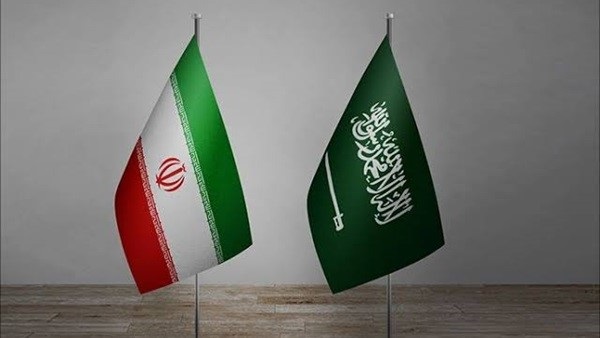Russian peace train strengthens Saudi-Iranian relations

The Iranian regime is trying to escape its economic crisis by
opening up to neighboring countries, especially
Saudi Arabia, by stopping the militias from launching attacks on neighboring
countries.
On the same path, Russia began cross-border economic
projects that included the participation of both the Kingdom of Saudi Arabia and
Iran, which resulted in the first Russian container train entering the Iranian
border on its way to Saudi territory.
This came after Saudi Arabia signed an agreement with the
Iranian regime last March in Beijing under Chinese sponsorship with the aim of
defusing tension in the region and stopping Iran from supporting terrorist
movements spread in Arab countries.
The Fars news agency, which is affiliated with the Iranian
Revolutionary Guard, reported that the Russian train carried 36 cargo
containers, and according to its pre-prepared itinerary, it entered Iran from
the Incheh Borun border crossing located between Iran and Turkmenistan, which
neighbors Iran to the northeast. The train ran on the north-south corridor,
which is a new trade route that competes with traditional international maritime
trade routes.
Russia's South Urals Railways plans to send two container
trains per month along the north-south transport corridor, starting in the
third quarter of this year.
This project is expected to contribute to reducing tensions
between the participating countries, especially between Iran and Saudi Arabia,
because of the economic opportunities it entails in reducing the period of
transporting goods by several days and increasing the chances of sending more
goods from the South Urals region in southern Russia towards the Arab Gulf
countries via railway, reducing customs duties and thus further reducing the
fees for sending goods via the north-south corridor by nearly half.
Last June, media reports revealed the launch of the first
container train from the Russian Chelyabinsk freight station heading to Saudi
Arabia, passing through the territories of Kazakhstan, Turkmenistan and Iran.
The first train shipment included dozens of containers loaded with
energy-related equipment as well as metals.
Saudi Arabia was able to stop the launching of cross-border
missiles by the Iranian-backed Houthi militia after the Beijing agreement in
March, paving the way for holding Yemeni-Yemeni dialogue sessions to resolve a number of outstanding issues as a prelude to a
comprehensive political solution in Yemen.
Both Tehran and Riyadh also joined the BRICS group during
the conclusion of the group’s summit in South Africa last month with the aim of
supporting economic relations in a more independent framework from Western
powers. The Collective Security Treaty Organization also invited
representatives of Saudi Arabia and Iran as observers in the organization’s
maneuvers that will take place in Belarus, a close ally of Russia.





